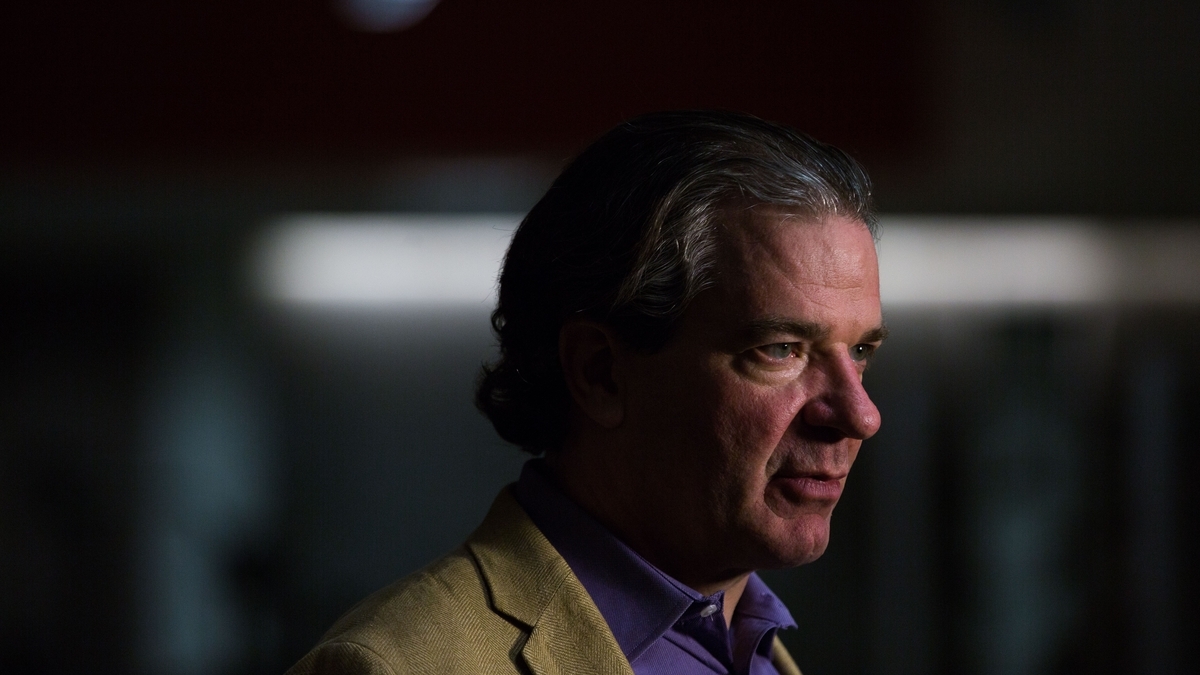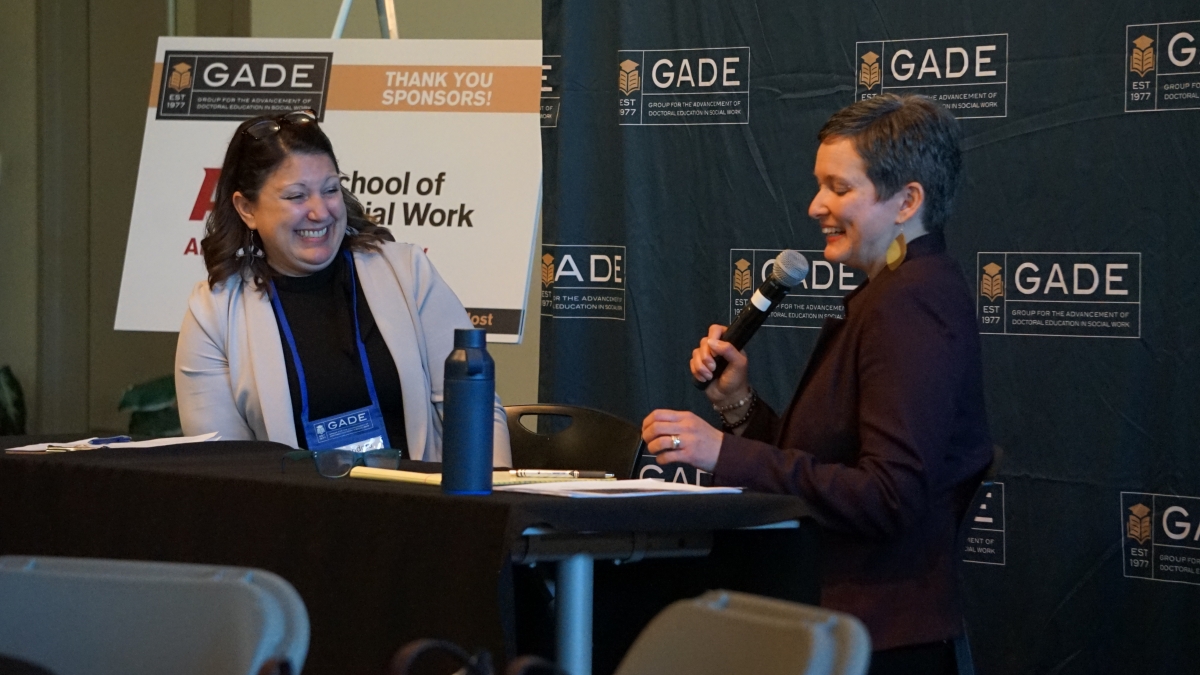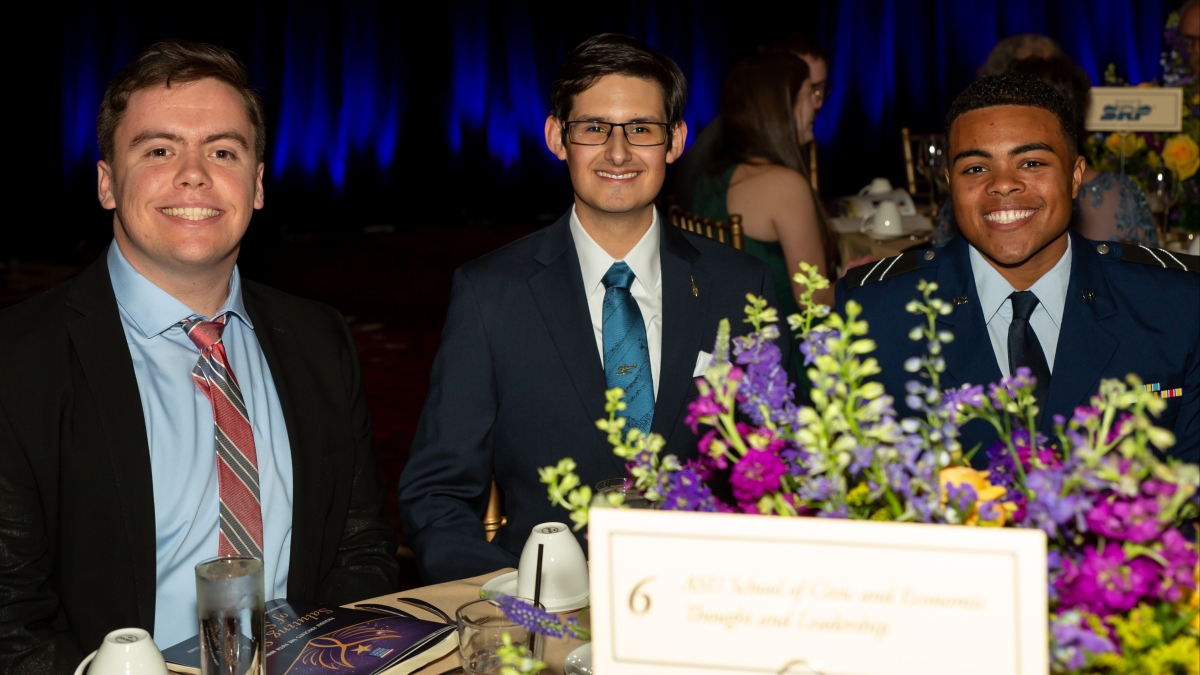Shifting the terrorism narrative
Peter Bergen tells ASU audience that terrorist stereotypes, assumptions are inaccurate

Many historians consider the 1970s the “golden age of terrorism.”
This is when Palestinian terrorists kidnapped and killed 11 Israeli athletes during the 1972 Olympics in Munich. It’s the decade that the Irish Republican Army led a bombing campaign throughout London during “The Troubles.” Throughout those ten years several jihadist terrorists dominated worldwide headlines with hijackings, bombings and planned explosions.
At the time the common perception was terrorism was real, though something that would never cross over our borders. Decades later, in our plugged-in, post-9/11 world, terrorism hasn’t just entrenched itself among us, it’s just a mouse click away.
This is according to Peter Bergen, a Professor of Practice in Arizona State University’s School of Politics and Global Studies and co-director of the Center on the Future of War. Bergen presented “United States of Jihad: Investigating America’s Homegrown Terrorists” Tuesday evening at ASU’s Walter Cronkite School of Journalism and Mass Communication as part of the Center on the Future of War Spring Speaker Series.
The presentation was based on Bergen’s latest book of the same name, which examines the phenomenon of why Americans become jihadists, how our government is dealing with these threats and the scars it has left on our collective national psyche.
“Most of the lethal attacks on citizens after 9/11 have been from American residents and very few are refugees,” Bergen said. “Most of them are as middle-class as you can think of … this is an American phenomenon.”
He said many of America’s homegrown terrorists are recruited through social media, online magazines and the virtual jihadist community.
“It used to be that recruitment took place in a mosque or at a terrorist training camp,” Bergen said. “Now you’re getting it in your own bedroom.”

Peter L. Bergen lectures on terrorism in America at the Walter Cronkite School of Journalism and Mass Communication in downtown Phoenix on Feb. 16, 2016. Photos by Deanna Dent/ASU Now
The national security analyst at CNN said that of the 330 militants he studied over a two-and-a-half year period a large percentage of them broke the stereotype of the young, disenfranchised 20-something. Bergen said that a large majority are well-educated, a third are married and have children, come from middle-to-upper class homes and their rates of mental illness are lower than the general population.
“They’re not crazy or are career criminals, they’re not insane, they’re not maladjusted and so why did they choose this idealogy?” Bergen said. “In some ways, getting to the why question is still very hard.”
Especially when terrorists like Chechen brothers Dzhokhar and Tamerlan Tsarnaev, who plotted and executed the Boston Marathon bombings, had almost every opportunity afforded to them in this country despite some personal disappointments.
“Most people have family issues and problems but don’t murder innocent people,” Bergen said. “Perhaps that’s the nature of evil … it’s sort of inexplicable.”
Bergen said recent high-profile attacks such as the 2009 Fort Hood (Texas) shootings or the San Bernadino, California, massacre last year have 80 percent of all Americans fearing they or their family members will be killed in a terrorist attack. He said those fears, while very real and visceral, should be kept in check. Bergen said Americans residents are 3,000 times more likely to be killed by a fellow countryman armed with a gun than by a jihadist.
“Each year three people die as a result of jihadist terrorism and that’s an extraordinarily low figure,” Bergen said. “Compare that with 10,000 Americans who kill each other with guns for all sorts of reasons that have nothing to do with ideology,” Bergen said. “That’s a sad commentary on American gun violence in this country.”
Bergen said the U.S. government has done an excellent job protecting the country from terrorist attacks since 9/11 by bolstering our national defense, improving communication between the FBI and CIA, forming the Department of Homeland Security and the National Counterterrorism Center and increasing role of local law enforcement. He also credits a vigilant public.
“Most terrorists are not going to try and bring a gun or a bomb on an American plane. That avenue more or less has been closed off for terrorists,” Bergen said. “The fact is we’re a pretty hard target.”
More Local, national and global affairs

Sustainability takes spotlight at ASU-hosted social work educators conference
The academic discipline of social work not only educates future social workers who help people cope with life’s challenges — it also advances research that furthers social change. To further that…

ASU at the heart of the state's revitalized microelectronics industry
Gradually, and then suddenly. It’s not only a famous line from Ernest Hemingway’s novel “The Sun Also Rises,” it’s an apt description of how Arizona has transitioned from an economy based on its…

ASU class connects students with veterans
A brand-new class offered this spring through Arizona State University's School of Civic and Economic Thought and Leadership is making an impact on students and military veterans. The course,…